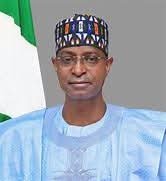(DDM) – The Federal Government of Nigeria has announced plans to harmonize livestock data across the country, signaling a major shift from estimation-based policies to an evidence-driven approach aimed at revitalizing the livestock industry.
Diaspora Digital Media (DDM) gathered that the government believes accurate data will enable more strategic planning, better resource allocation, and stronger monitoring of livestock production, trade, and consumption.
Officials noted that the livestock sector has the potential to contribute up to $74 billion to the Nigerian economy if properly managed and modernized.
Currently, the industry faces challenges stemming from inconsistent records, outdated estimates, and fragmented information across states and local government areas.
These data gaps have historically hindered policymakers from implementing targeted interventions or measuring the impact of programs designed to support herders, farmers, and processors.
The Ministry of Agriculture emphasized that harmonized data will improve disease control, facilitate access to veterinary services, and enhance supply chain efficiency from farm to market.
Government planners also stressed that reliable statistics are essential to attract domestic and foreign investment into the sector, particularly in areas such as meat processing, dairy production, and animal feed production.
Livestock experts have welcomed the initiative, noting that proper data collection could address recurring problems such as overgrazing, cattle rustling, and livestock theft by enabling timely interventions.
The initiative is expected to involve collaborations with state governments, agricultural research institutions, and international partners to ensure uniform methodology and accurate reporting.
Historical data suggests that Nigeria’s livestock population, cattle, goats, sheep, and poultry, has grown rapidly, but the absence of accurate records has limited the government’s ability to project growth potential or track trends.
The Federal Government intends to employ modern technologies such as Geographic Information Systems (GIS), mobile surveys, and centralized databases to capture real-time information from rural and urban livestock hubs.
Stakeholders say this strategy may also help integrate smallholder farmers into national value chains, improving profitability and reducing poverty in rural communities.
Private sector actors have expressed optimism, arguing that reliable data will enhance planning for feed mills, abattoirs, and processing plants, potentially creating thousands of jobs.
The government has pledged that the initiative will be rolled out in phases, starting with pilot states before nationwide implementation, ensuring lessons learned are incorporated into the broader system.
Agricultural economists point out that evidence-based policy will also improve Nigeria’s capacity to compete with other livestock-producing nations in West Africa and beyond.
For now, the government’s move signals a commitment to modernizing agriculture, boosting food security, and unlocking the economic potential of the livestock industry through accurate, actionable data.
Experts agree that if successfully implemented, this policy could transform the sector, raise productivity, and significantly increase Nigeria’s GDP contribution from livestock.
The Federal Government continues to call on all stakeholders, including farmers, herders, and private investors, to cooperate in providing reliable information and supporting the data harmonization initiative.




